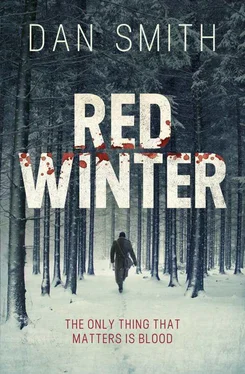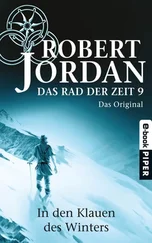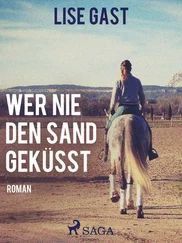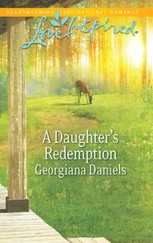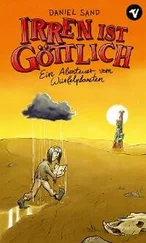The weak sun of approaching winter had dropped by the time I forced myself to move, so that only a grey, grainy light slipped through the windows as I went to the pich and put a hand to it, feeling the coldness of the iron door, which lay open, and the hardened clay that surrounded it. In the depth of winter, we often slept above the oven, all four of us sharing the benefit of its heat, but now white ash slumped in a heap inside where it had burned itself out. Beside it, cooking implements leaned against the wall, ready to be used. Sprigs of dried plants hung from a narrow beam over my head, and one or two leaves had been pulled free and lain on the wooden surround. A neat pile of fresh logs and kindling was stacked in the corner.
On the table, four plates lay in no particular arrangement, as if they were about to be set out. The underlying smell in the room pointed to the presence of rotting food, but I saw nothing to indicate where the odour was coming from – nothing in the oven or on any of the plates – and the only food left in the cupboard was a handful of potatoes, some pickled cabbage and a few strips of dried pork.
In the centre of the table, a half-burned candle was glued with its own wax to a chipped bowl and I remembered how it was when the candle was aflame and voices filled the room. It was always warm and light, even in the deepest days of winter, when the pich was burning and my family was together.
As a soldier, I rarely had the opportunity to come home; my visits were sporadic and often came less than once a year. The last time I was inside this room was more than six months ago. It was early spring, and my unit was close, meeting with a larger force for resupply, so I took a week to visit home. Alek came too, and we sat at this table that first night and saw how Marianna and the boys coped with what little they had. Whites and Reds had been through the village more than once, taking what provisions they could find, leaving them with almost nothing, but I was thankful my wife and children had been left unharmed. Misha and Pavel were proud to show off the rabbits they had snared in the forest and the fish they had taken from the lake, just as Alek and I had snared and fished when we were younger.
Now I stared at the table and imagined them round it, as they had been that night, and I felt an overwhelming sense of what had been. The togetherness that had filled me was more than any sense of brotherhood I felt with my comrades-in-arms, and it confirmed my growing doubts about the war and all that it stood for. Being with my own children, my own wife, had brought visions of those who now lay wasted in the fields and forests and burned towns and villages of our country. And when our meal was done and the night had grown dark and the children slept, Marianna and I had come together in a way that made me want her more than ever. Lying with her, feeling her beside me, I had found myself longing for a means to leave the horror behind and return to the family she had held together so well. I had known then that coming home was my only chance for redemption; my only chance to fill the emptiness.
My eyes drifted to the bent nails beside the door. I had put them there a thousand years ago, hammering the iron into the thick wooden wall because Marianna wanted somewhere to hang our winter coats, but now those coats were gone and the nails were naked.
I wondered what it meant. Had they taken their coats because they hadn’t expected to return? Already the early winter winds had risen and the snow was not far away. Only a fool would leave without her coat when the land was preparing to sleep. With that in mind, I took the absence of coats as a good sign. Wherever they had gone, my wife and children had the foresight to prepare for cold weather.
Running the fingers of my left hand along the edge of the table, I moved to the door that stood open to the bedroom.
‘Marianna?’
Shivering from the damp cold in my legs, I pushed the door open a little further and crept in. There was a heavy atmosphere; a sense that I should remain unnoticed. This was my house, yet I felt like a stranger – a thief stealing in during the night.
The beds were made and pushed against opposite walls, just as they had always been. The one below the window was the bed Marianna and I had slept in for years, the other for my sons, Misha and Pavel.
A translucent and frayed curtain hung from a crooked rail, allowing the last light of the day to filter through, and there was a rug hanging on the back wall, red and black, but faded with age. A chest of drawers painted white, and a small, round table with a piece of old lace thrown across to protect its surface. A single chair with a towel over its back. Above the table, a small icon hung on a nail. Everything was in exactly the same place as it had been when I left. Nothing had moved. It was as if, at any moment now, Marianna and the children would come into the house and life would return to normal. But something had happened here; I could feel it.
I went to the table where some of Marianna’s belongings lay and ran my fingers through the teeth of her hairbrush, one or two hairs still caught there as if to prove her existence. They were long and golden, the colour of ripe winter wheat. It was a trait she had hoped for our children to inherit – fair hair and eyes as blue as the summer sky – but my own darkness had won over. Misha had her fine features, her narrow face, her mannerisms and her strength, but his hair was the colour of burned sugar, and he had dark and serious eyes. Pavel’s colouring was lighter, with hazel eyes. His hair had the same hue as the acorns Alek and I used to collect from the forest floor when we were boys, and it always seemed to smell fresh and clean no matter what. I used to love putting my nose to the top of his head in the pretence of kissing him, just to breathe that smell. Pavel’s temperament was closer to mine – he was more reserved than his brother – and I always understood him better than Marianna did.
I pulled the hairs from the brush, holding them between finger and thumb, hoping for a sense of closeness to my wife, but feeling no change to the empty silence. I picked up Marianna’s chotki , the knotted prayer rope she tied herself from lambswool, and turned it in my hand just as I saw a flurry of motion from the corner of my eye.
A dark shape moving. The swish of material and a solid thump on the wooden floor.
I dropped the prayer rope and whipped round, raising the revolver and sinking to one knee to make myself low. My heart pounded and it was almost impossible to breathe. In a fraction of a second I had to choose whether or not to fire. It might be an enemy. It might be my wife. Or perhaps this was one of my dreams and it was something darker come to claim me for the terrible things I had done.
No more sign of movement from the shape behind the door. I relaxed my fingers and breathed deeply, keeping the revolver levelled at the object as I approached, seeing almost at once that it was not a person or anything more sinister. It was only a coat I had dislodged from its hook on the back of the door. Just a black woollen coat.
I bent to take it in my fingers, and when I lifted it to the dim light from the window, my heart stopped. This wasn’t just any coat. It was my wife’s.
It was Marianna’s winter coat. She must have hung it here, in the bedroom, but why had she not taken it with her?
I sat on the bed and leaned forward, holding the revolver so tight my fingers began to ache.
‘Where are you?’ The frustration was almost unbearable. ‘Why aren’t you here?’
I had come so far and risked so much, and all I had found was this.
When Alek and I had run, our unit had been moving north-east to Tambov, called to aid in the destruction of the peasant rebellion that had begun in August, rising out of the unrest caused by the harsh grain requisition laws and their heavy-handed implementation by the Red Army. Already the peasant militia was calling itself Blue and numbered more than fifty thousand fighters. It had even attracted defectors from the Red Army, so some units were ordered back from fighting the Whites in Ukraine to bring it under control and intensify the Red Terror that would subdue the masses. It was on that journey north-east, heading towards Tambov, that Alek and I had finally seen an opportunity to break away; to escape the endless progression of violence and horror that had become our second nature.
Читать дальше
